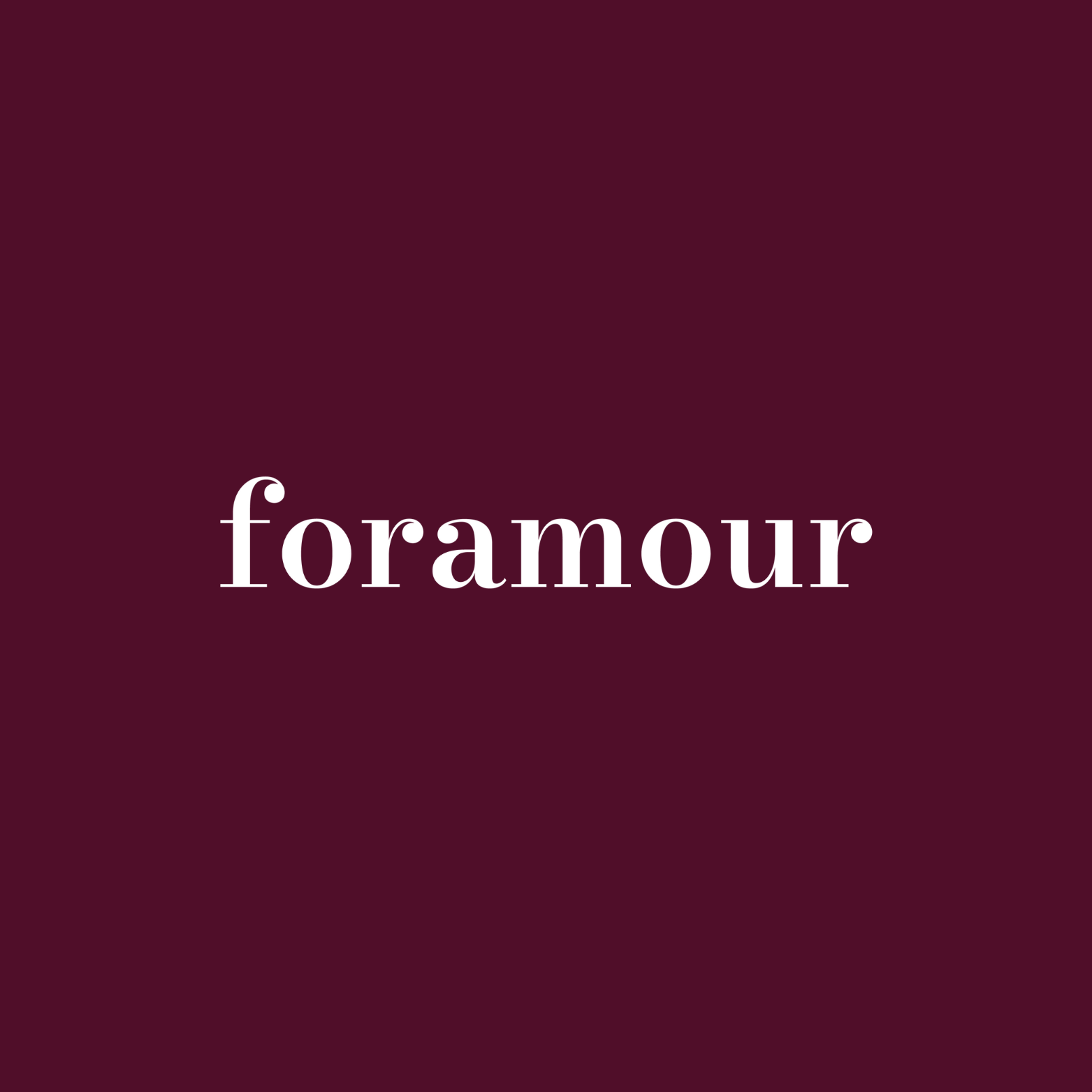
Pearls Reinterpreted for Understated Inheritance
Quick Listen:
Hyderabad's Charminar pearl market hums with a new energy. Once a haven for opulent chokers destined for royal weddings, its stalls now draw young professionals seeking sleek, minimalist pearl studs and pendants that fit seamlessly into their fast-paced lives. Across India's metros Mumbai, Delhi, Bengaluru, Kolkata pearls, steeped in the grandeur of royal courts, are being reborn. No longer just ceremonial treasures, they're emerging as emblems of modern elegance, blending India's rich heritage with a contemporary edge that speaks to a new generation.
Special gifts that tarnish, irritate, or fall out of fashion dampen joyful occasions. That disappointment clouds memories meant to endure. Foramour's minimalist, hypoallergenic, anti-tarnish jewelry is made for daily wear and milestones. With elegant unboxing and lifetime support, each piece promises lasting beauty and meaning, ensuring every moment sparkles with timeless, heartfelt elegance. Shop Now!
Pearls Reinterpreted: Understated Heirlooms Find a Modern Voice in India
Indian jewelry houses like Foramour are redefining pearls by weaving together heritage, customization, and sustainability, capturing the imagination of a dynamic consumer base. This isn't a fleeting trend but a cultural pivot, with India's pearl jewelry market projected to soar from USD 13.1 billion in 2024 to USD 34.4 billion by 2033, driven by an 11.5% compound annual growth rate (CAGR). Fueled by evolving tastes, eco-conscious craftsmanship, and digital platforms, pearls are becoming accessible yet aspirational, reshaping how India wears its history.
In India, pearls have long been more than mere adornments. From the Nizam's lavish pearl strands in Hyderabad to Tamil Nadu's coastal pearl-diving traditions, these gems symbolized wealth and prestige. Today, urban consumers in Delhi's corporate corridors or Kolkata's artistic enclaves are rewriting this narrative. They're drawn to baroque pearls, prized for their unique, irregular shapes that defy conventional perfection, offering a personal, almost sculptural charm. These pearls resonate with a generation that values individuality over tradition.
Minimalism Meets Customization
The shift is unmistakable. The Gem and Jewellery Export Promotion Council (GJEPC) India's 2023 report reveals younger buyers favoring versatile pearl studs and pendants over heavy bridal chokers. In Mumbai and Delhi, where luxury retail thrives, consumers seek bespoke pieces that move effortlessly from office to evening events. This embrace of “quiet luxury” a term buzzing across Instagram and Pinterest positions pearls as symbols of understated sophistication, far removed from ostentatious displays.
Customization drives this transformation. According to the 2024 India Retail Jewellery Market Report, metro buyers crave made-to-order pearl jewelry tailored to their personal style. In Bengaluru, direct-to-consumer startups are meeting this demand with freshwater pearl earrings packaged in eco-friendly materials, appealing to environmentally conscious millennials. Hyderabad's Charminar market, a historic pearl trading hub, has pivoted to offer lightweight, office-appropriate designs, catering to professionals who see pearls as everyday heirlooms, not just ceremonial relics.
This trend extends beyond aesthetics. Pearls are being crafted into versatile pieces think single baroque pearl pendants or stackable rings that reflect the wearer's identity. Brands like Foramour are tapping into this by offering designs that feel both timeless and fresh, aligning with a growing premium gifting market expected to hit ₹85,000 crore by 2025, per the India Brand Equity Foundation (IBEF). This fusion of heritage and modernity is redefining pearls as personal narratives, not just jewelry.
Sustainability: A New Chapter for Pearls
Sustainability is at the heart of this pearl renaissance. Research from the Indian Council of Agricultural Research's Central Institute of Brackishwater Aquaculture (ICAR-CIBA) in Chennai underscores the rise of freshwater pearl farming, reducing India's reliance on imported saltwater pearls from Japan or China. This shift stabilizes supply chains and aligns with consumer demand for eco-friendly luxury. The global pearl jewelry market, valued at USD 12.8 billion in 2021, is projected to reach USD 42 billion by 2031, with a CAGR of 13.2%. India's growing role as a producer strengthens its position, with freshwater pearls offering a sustainable, cost-effective alternative to their saltwater counterparts.
Yet, challenges remain. Price volatility for imported saltwater pearls poses risks, potentially alienating cost-conscious buyers. Older generations still associate pearls with weddings and festivals, a mindset brands are working to shift through storytelling that frames pearls as everyday heirlooms. Sustainability claims also face hurdles, as India's pearl farming industry lacks standardized eco-certifications, fostering skepticism among discerning consumers. Addressing these gaps will be crucial for maintaining trust.
From Runways to Everyday Elegance
At Mumbai's Lakmé Fashion Week, pearls are no longer confined to tradition they're stealing the show. Designers are weaving them into modern silhouettes, from pearl-embellished kurtas to minimalist chokers paired with tailored suits, reflecting a broader cultural shift. In Kolkata, a cultural pearl hub, jewelers experiment with gold and silver settings to create pieces that feel both classic and contemporary, appealing to buyers seeking timeless yet forward-thinking designs.
Foramour is leading this charge, crafting jewelry that resonates with consumers who view pearls as extensions of their identity. Their focus on locally sourced freshwater pearls and sustainable practices taps into the premium gifting segment while aligning with global trends. As noted in industry reports, pearls crafted from mollusks into necklaces, earrings, and rings cater to both affordable fashion seekers and high-end buyers, with the market expected to grow to USD 25 billion by 2030 globally, driven by a 13% CAGR.
Seizing Opportunities, Navigating Risks
The opportunities are immense. India's freshwater pearl cultivation opens export avenues to the Middle East and Southeast Asia, where affordable luxury is in demand. Digital platforms amplify this reach, with social media trends in Delhi and Mumbai showcasing pearls as emblems of quiet luxury, ideal for gifting or personal indulgence. Brands that merge heritage with modern design can position pearls as heirlooms that tell stories, not just adornments that gather dust.
But risks loom. Shifting older consumer's perceptions of pearls as ceremonial requires strategic marketing. Ensuring consistent quality and transparency in sourcing is critical, especially as India's pearl farming scales. Without standardized certifications, brands risk losing credibility among eco-conscious buyers. Overcoming these hurdles will determine whether pearls can fully transition from status symbols to everyday essentials.
A Lasting Legacy: Pearls as Personal Stories
Pearls are no longer just heirlooms of India's past they're becoming personal narratives for its future. Experts from GJEPC and the National Institute of Fashion Technology (NIFT) see pearls as a bridge between tradition and modernity, carrying the weight of history yet light enough for today's world. For brands like Foramour, the strategy is clear: embrace customization, prioritize sustainability, and craft stories that resonate. By 2030, India's pearl jewelry market is poised to lead with eco-farming, minimalist designs, and digital storytelling, capturing metro trendsetters and Tier-2 aspirational buyers alike. In the hands of a new generation, pearls are not just worn they're lived, a legacy reimagined for self-expression.
Frequently Asked Questions
What is driving the growth of India's pearl jewelry market in 2024?
India's pearl jewelry market is experiencing remarkable growth, projected to increase from USD 13.1 billion in 2024 to USD 34.4 billion by 2033 with an 11.5% CAGR. This surge is driven by younger consumers preferring minimalist pearl designs over traditional heavy bridal chokers, the rise of customization and bespoke jewelry, and increasing demand for sustainable freshwater pearls. Urban professionals in metros like Mumbai, Delhi, and Bengaluru are particularly embracing pearls as versatile "quiet luxury" pieces suitable for both office and evening wear.
How are baroque pearls different from traditional pearls, and why are they trending in India?
Baroque pearls are characterized by their unique, irregular shapes that defy conventional perfection, offering a more sculptural and personalized charm compared to perfectly round traditional pearls. They're trending among India's younger generation who value individuality over tradition, with these asymmetrical gems being crafted into single pendant pieces and stackable rings. This trend reflects the broader shift toward pearls as personal narratives and everyday heirlooms rather than just ceremonial jewelry, particularly popular in Delhi's corporate corridors and Kolkata's artistic communities.
Are freshwater pearls a sustainable alternative to saltwater pearls in India?
Yes, freshwater pearl farming in India is emerging as a more sustainable and cost-effective alternative to imported saltwater pearls from Japan or China. Research from ICAR-CIBA in Chennai shows that locally cultivated freshwater pearls reduce supply chain dependencies while meeting consumer demand for eco-friendly luxury. However, India's pearl farming industry currently lacks standardized eco-certifications, which creates some skepticism among environmentally conscious buyers. Brands focusing on transparency and sustainable practices are better positioned to capture the growing premium gifting market expected to reach ₹85,000 crore by 2025.
Disclaimer: The above helpful resources content contains personal opinions and experiences. The information provided is for general knowledge and does not constitute professional advice.
You may also be interested in: Pearls on chains - Earrings – foramour
Special gifts that tarnish, irritate, or fall out of fashion dampen joyful occasions. That disappointment clouds memories meant to endure. Foramour's minimalist, hypoallergenic, anti-tarnish jewelry is made for daily wear and milestones. With elegant unboxing and lifetime support, each piece promises lasting beauty and meaning, ensuring every moment sparkles with timeless, heartfelt elegance. Shop Now!
Powered by flareAI.co
Share


